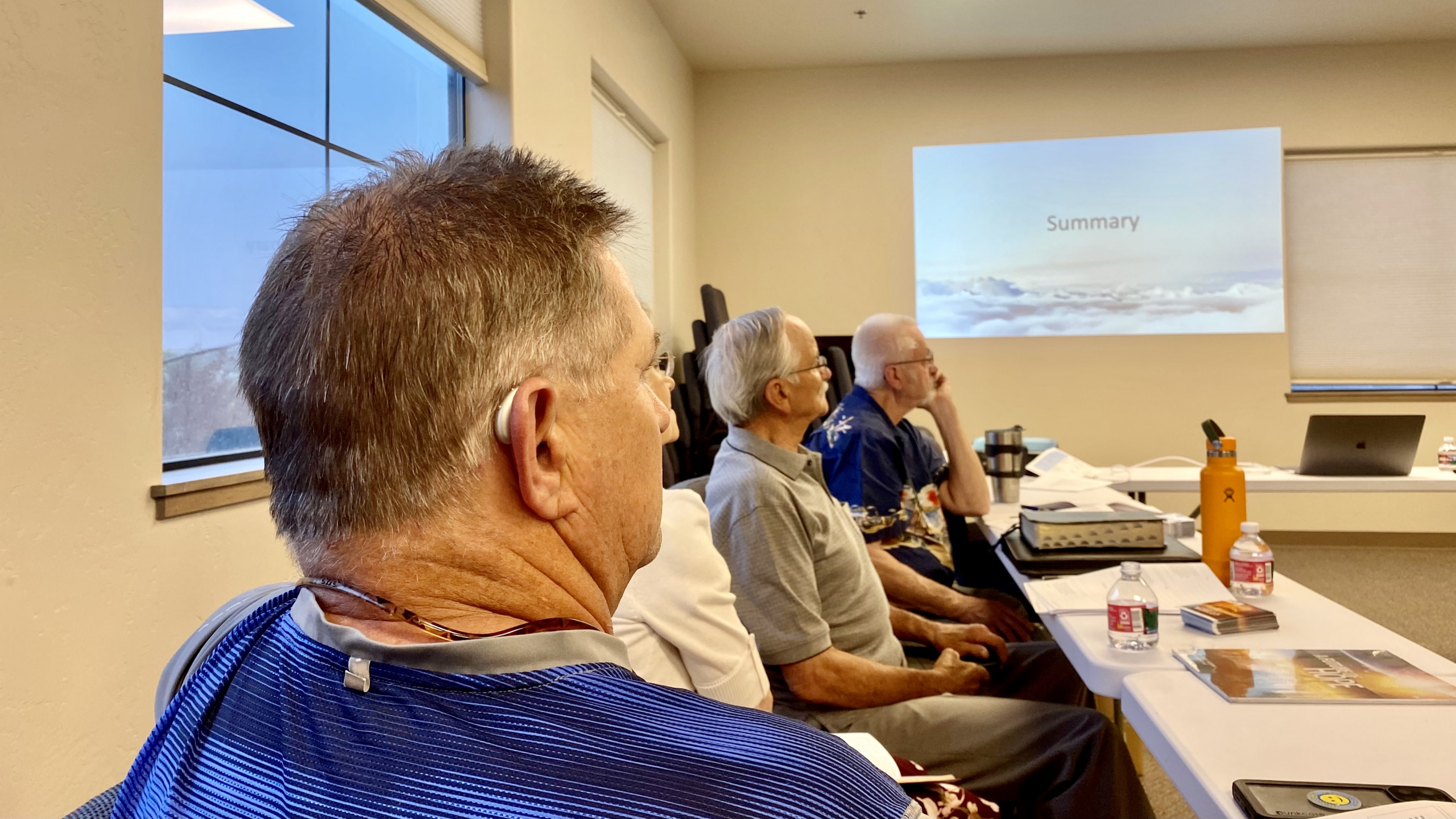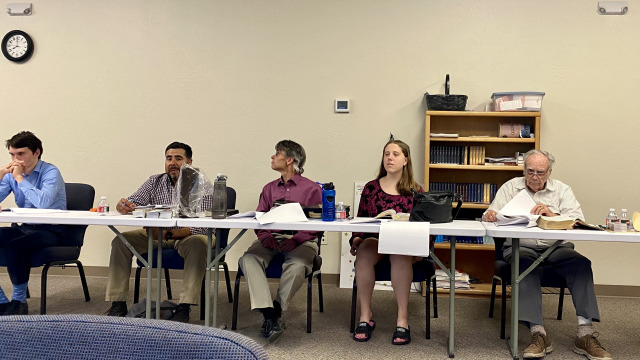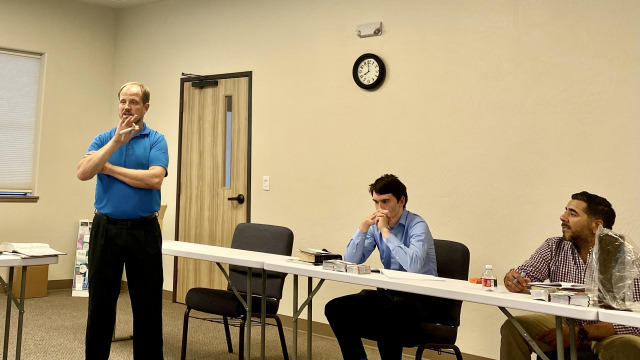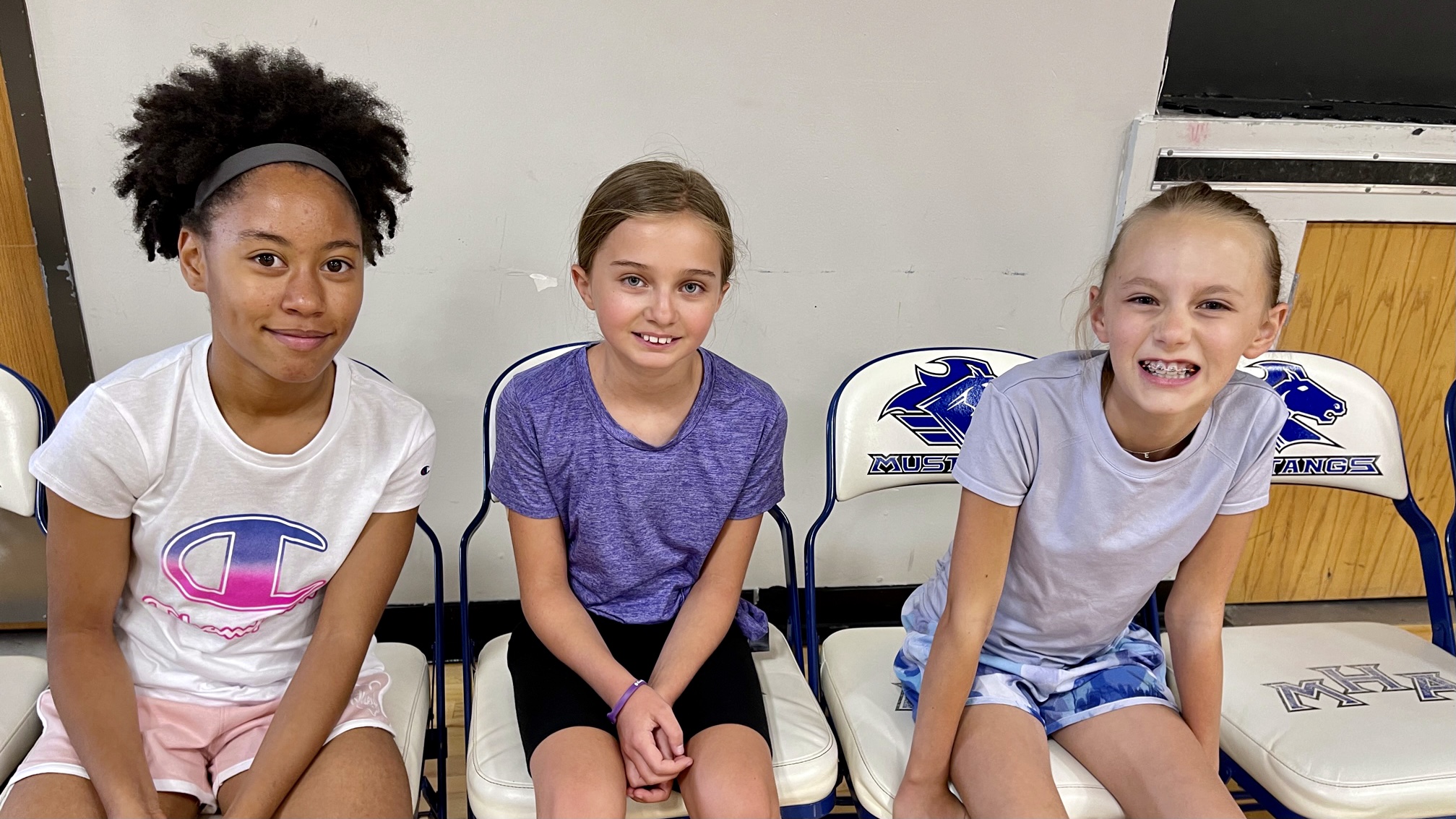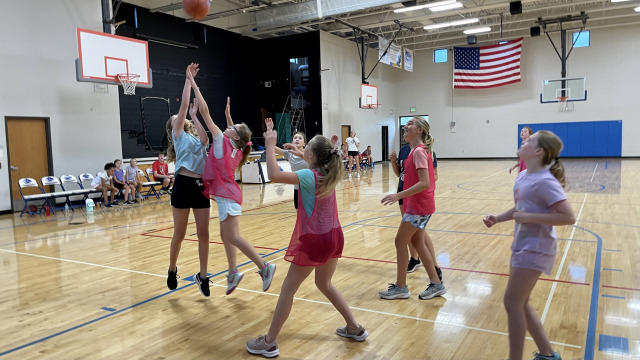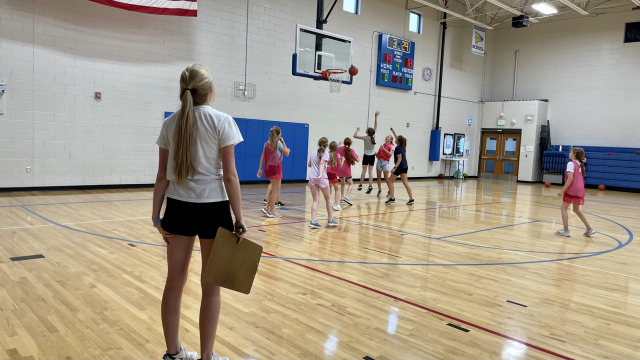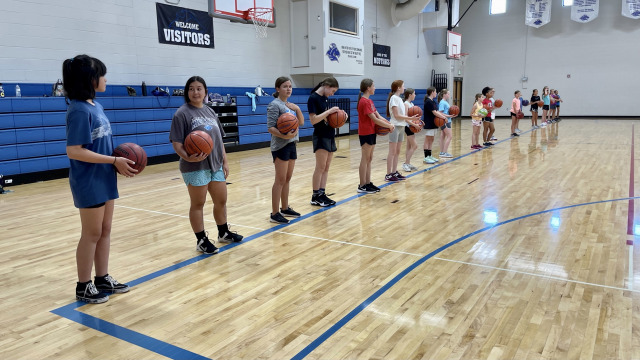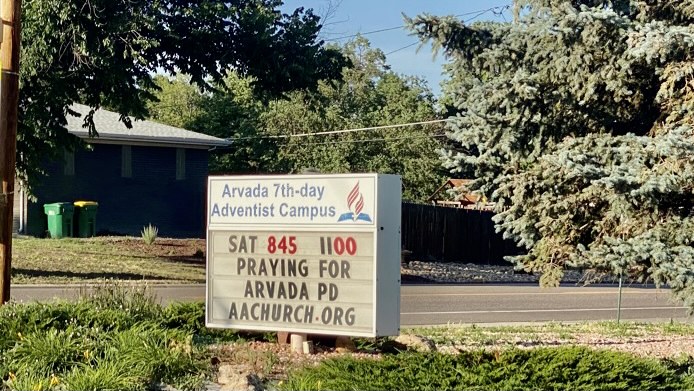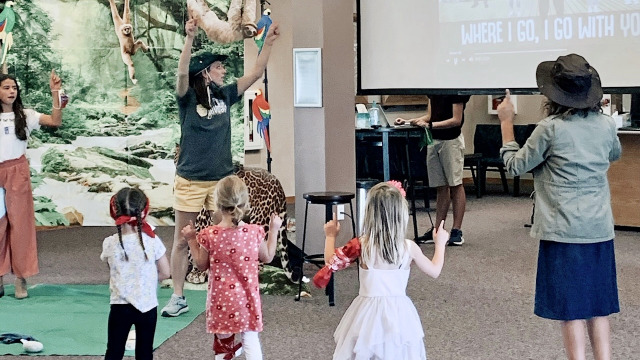By David B. Franklin … Bruce was missing for several weeks. Given the volatile nature of living on the streets of Baltimore, we were concerned but prayed for the best. After we had searched for him for a few months, one Saturday morning, Bruce returned to our hot-meal program. However, this time he was not looking to receive a meal; he had a story to tell. To our delight, Bruce had not become a victim of the harsh realities of homelessness in Baltimore. He was working hard to pull the pieces of his life together. In just a few short months, Bruce had managed to find a job and secure transitional housing. He was preparing to move into his own apartment a few days after we reconnected. It was such a joy to see such a quick transition. He was excited about his future and motivated to keep reaching for his goals.
Bruce, however, was not satisfied with his progress. He said, “It’s not enough for me to succeed; I want everyone down here to succeed.” He continued, “Pastor, they appreciate you, but they really listen to me.” That day, Bruce did not return for food; he returned for friendship. He was committed to his friends and wanted to do everything in his power to help them experience the progress he experienced.
Bruce exemplified the message Jesus shares in the parable of the lost sheep (Matthew 18:12–14; Luke 15:3–7). In the parable, Jesus illustrates the value of an individual. The shepherd leaves the fold to search for one sheep who is lost. In a similar manner, Bruce left the comforts of his new life to find his friends and show them how to experience a new reality. He was willing to make sacrifices, forgo comfort, and spend time reaching his friends. We learned several lessons from Bruce that day. However, the most important was that real relationships require active responsibility. This simple lesson has shaped the way we do ministry at Miracle City Church.
100K Touches campaign
In 2016, Miracle City Church embarked on a campaign called 100K Touches. We committed to reaching our community with 100,000 acts of service within a year. We divided our projects into six categories: homelessness, education, food, insecurity, economic development, and temporary crisis. Beginning in January, we invited members to serve. They could either sign up to serve for projects throughout the week or join us on Saturday mornings for our Big Serve Days. On Big Serve Days, members gathered at eight o’clock in the morning for a simple breakfast and a brief time of prayer and worship. Afterward, project teams huddled together for instructions and then deployed to locations all over the city. Some packed food for sick patients, others entered laundromats to surprise patrons with free loads of laundry, others visited local schools to refresh libraries and hallways, and still others participated in our hot meals for the homeless program.
During this year, through partnership with local nonprofit organizations and the creativity of members in our congregation, we hosted job fairs, painted schools, cleaned up parks, launched an after-school program, provided fresh produce from Whole Foods to residents, supported literacy programs, started a community garden, visited nursing homes, and so much more. As a result, by the grace of God, we completed 127,569 touches, exceeding our goal in only eight months.
The importance of this initiative for our congregation is hard to overstate. Our congregation began to view church less as an event and more as a community. We began to see our worship experience as a place to share stories of victory, pray with one another, and “refuel” to go out and serve others. We also learned that making a sustainable impact would require a different approach. In many ways, Bruce had shared all we needed to know, but it took some time to unpack the lessons his example provided. However, after several conversations and some sincere prayer, we discovered a better way forward. The rest of this section will be devoted to sharing some principles we learned on how to engage effectively in community outreach through developing loving relationships.
Relationships
All effective community outreach begins with relationships built upon mutual love and respect. The word mutual is important. Relationships are meant to be a two-way street, to maintain a balance of give-and-take that is fueled by mutual responsibility. As a church family, Miracle City did not always take this approach to community outreach; however, Bruce showed us a better way.
Bruce returned to the hot-meal program to find his friends because of the relationships he had established with them. His friends were there with him during tough times, and now he felt a responsibility to help them during their rough times. He loved his friends, and they loved him as well. Their mutual love gave Bruce the unique ability to reach them in ways that we could not. In fact, their mutuality was the key ingredient that allowed Bruce’s friends to listen, learn, and, ultimately, change. One of the greatest barriers to effective community outreach is that we fail to develop relationships built upon mutuality.
Let us return for a moment to the parable of the lost sheep. If we consider our place in that story, we must acknowledge we have all been the lost sheep. However, sometimes in our genuine effort to follow the example of the Chief Shepherd, we can forget that we are all sheep. This thinking can inadvertently produce a superior-inferior relational construct between the church members and the community members. When this happens, church members often see community members as a project and not as partners. In addition, community members could see church members as manipulative, invaders, or, even worse, destructive. All of this works against effective ministry to those in our communities.
If we are going to minister to our communities effectively, we must build relationships full of mutual love and respect. It will require us to accept that we not only have something to give but also have much we need to receive. Churches must learn to listen to community members in order to understand not only their needs but also their strengths. Every community has strengths that can be empowered to assist community members in identifying solutions to the challenges that exist in their community. However, churches never learn of these strengths without entering into balanced relationships in which both the church and the community see that they have something to give and something to receive. When we have relationships built upon our mutuality, we open the door to engaging effectively in community outreach in a way that grows our churches and strengthens the community at the same time. Maybe even more important, our church members will begin to see that baptism and community building all qualify as kingdom building.
It is important to build relationships with various groups in our communities:
• Residents
• Students
• Community association members and leaders
• School principals
• Community center directors and staff
• After-school program directors
• Local business owners
• City council members
Reputation
Initially, the 100K Touches campaign helped our church develop a good reputation in the community. However, it fell short of building deep relationships with the community members, primarily because we unintentionally structured our outreach for people to receive assistance but not to build relationships.
So, was all of the effort wasted? Not at all. During the 100K Touches campaign, we realized we had stumbled upon a formula for building relationships within communities. When a church is unknown to the surrounding neighborhood, it must build a reputation that allows the community to begin trusting the church. Service projects that meet temporary needs are one way to build the reputation of the church, which in turn opens the door to establishing relationships with community members. However, members of the church must be keenly aware that the goal of the service project is not to give out the most sandwiches, blankets, coats, or other items. The goal is to create space for relationships to grow. Members of the congregation must give attention to more than packing bags and filling baskets. Instead, members must take a genuine interest in the lives of those who are coming to receive assistance. Service projects are just one way to build the reputation of the church. Other programs could provide the same level of interest or visibility. The goal is to create space for church members and community members to connect.
To assist our church members with understanding this principle of out- reach, we adopted a term as our guiding philosophy—disinterested benevolence. In our use of the term, disinterested benevolence simply means to do good for the sake of doing good without expecting anything in return. We rehearsed this term and its meaning at every outreach meeting. Before every Big Serve Day, we posted it on the Serve page of our website and shared it during our worship experiences. We wanted to prioritize the people over the projects and ensure that members of the community did not feel that our outreach was just a tool to rope them into attending a Bible study or church service. We knew that to build trust, there must be no strings attached so that genuine love could drive all of our trust-building work.
–David B. Franklin is the lead pastor of Miracle City Seventh-day Adventist Church in Baltimore, Maryland; photo by UnSplash
This article is an excerpt from the newly available book Multiply and was originally published on the NAD ministerial association website.


